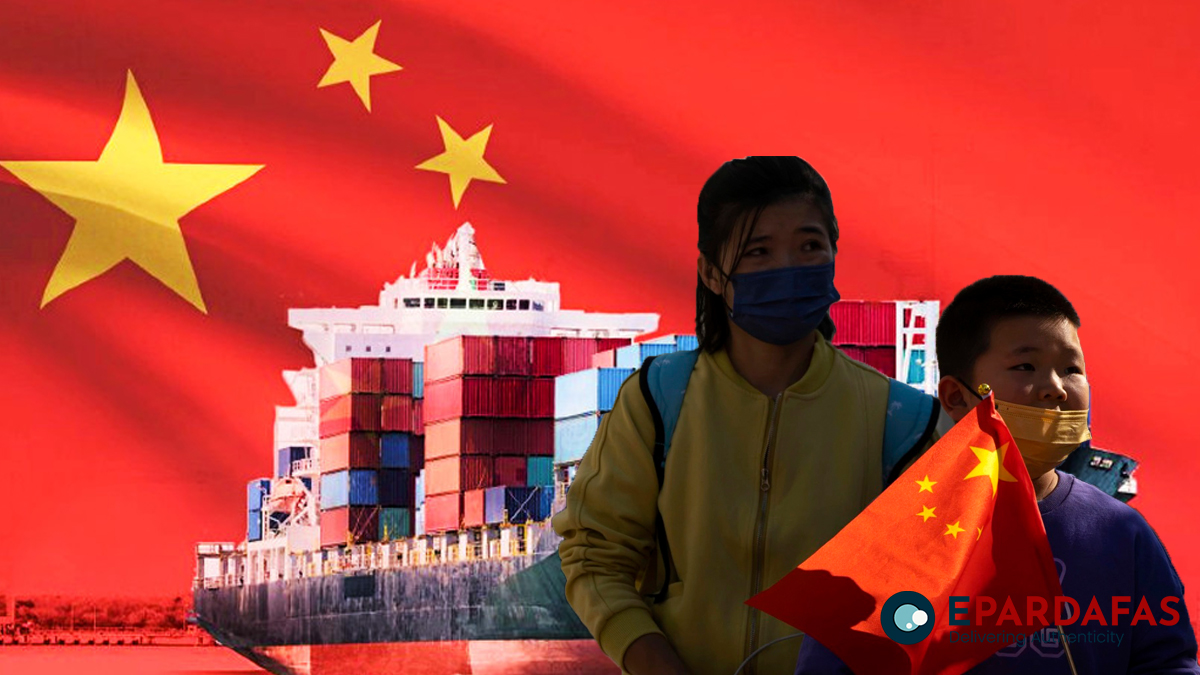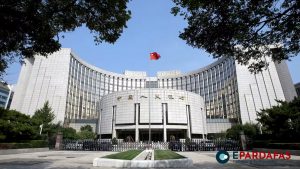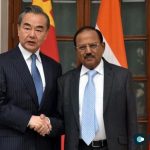
With declining population, China set to lose comparative advantage as ‘factory of the world’
Alarm bells have started ringing in Beijing that India has lately surpassed China as the most populous country in the world. Mandarins of the Communist Party of China are alarmed that, with a declining population, the story of spectacular economic growth of China will soon be reduced to folklore of the past.
The United Nations Population Fund data released in April 2023 has revealed that China, with its population of 1425 million people, has been relegated to the position of the second most populous country in the world, next to India with its population of 1428 million.
An alarmed Beijing on April 19 sought to downplay India overtaking China as the world’s most populous nation with the argument that China still has a “quality workforce” of close to 900 million people to provide a strong impetus for development. “I want to tell you that the population dividend does not depend on quantity but also quality,” Foreign Ministry spokesman of China Wang Wenbin said in a media briefing on that day.
The concern of Beijing is obvious as China has scripted its story of spectacular economic growth in the past three decades by arranging the supply of cheap labour from its abundant population, thus making the country an attractive destination for global investors to set up manufacturing bases. The secret behind the growth story of China is the inhuman exploitation of its workforce by the state machinery so that the coffers of the Communist Party of China can be filled up.
Now, however, with the growth rate in the population of China showing a declining trend and the supply of cheap labour drying up, China stands to lose the comparative advantage it has enjoyed in the global market as an attractive destination for investment. Wage rates in China have also started increasing. Common people in China are no longer prepared to be subjugated by the ruling Communist Party of China; as the open rebellion against draconian lockdown measures in the big cities in China like Shanghai and Beijing toward the end of 2022 have clearly shown.
The mandarins of the CPC also fear that the declining growth rate of population in China will also mean a shrinking domestic market with fewer customers for finished products. This will lead to a decline in the demand for goods and services and thus slow down the economy. Under the rule of President Xi Jinping, with its aggressive behaviour to bring the world under its control, China has been shunned by other countries. With increasing isolation, China will find it increasingly difficult in the coming days to sell its products in the international markets and will have to depend on its home market for economic growth. Fewer customers in the domestic market will make things difficult for China in the coming years.
In fact, that the population of China is declining is not the end of the story. The population of China is also ageing rapidly. In China, fewer people will have to sustain a growing number of older people who cannot contribute to the growth of the economy.
An Observer Research Foundation study says that by 2100 the population in China in the working age group, from 15 years to 64 years, will be just 400 million, against 1 billion of today. According to the 2020 census in China, 264 million people, that is about 18.7 percent of the population, is above the age of 60 years. By 2035, this figure will increase to 400 million or about 30 percent of the population. The Chinese government is reported to be planning to raise the retirement age beyond the current 60 years for men and 55 for women. The pension funds for urban workers could be running in deficit in 2028 and the funds could become insolvent by 2035.
Jobs based on cheap labour have already started to move away from China, so there is a need to create more high productivity high value jobs. Unfortunately for Beijing, the productivity of labour in China is still far below the Western standards. Measured in terms of gross domestic product per hour of work, the productivity of labour in the USA, the European Union countries and Singapore measure at between $50 and $70, while in China it is only $13.
China had so far been known as the “factory of the world.” Manufacturers from Western nations used to set up production facilities in China to take advantage of the low labour cost. Auto makers from the United States had been investing in
Chinese manufacturing facilities and testing the potential of selling in the USA cars built in China. Major car brands in Germany like Volkswagen have been producing cars in China for decades.
Now with the shift in Sino-German relations, the three German car majors, BMW, Mercedes – Benz, Volkswagen, are rethinking their strategies in China. The deteriorating business and political environment is counting a lot, together with human rights abuses indulged by the Chinese authorities.
Like all command economies, the weakness of the Chinese economy is the failure to develop hi-tech consumer goods industries which are the engines of growth. Who can name a world famous Chinese car brand or a camera brand, except cameras used in surveillance? China, on the other hand, has been the place where famous brands have been assembled, be it cars or computers. Even in the area of electrical vehicles where China is said to be strong, the technology is coming from Western countries.
Now with global investors fighting shy of China, Beijing is faced with the spectre of the manufacturing bases of all these products vanishing from China.
Leading trade journals have listed electrical and other machinery, toys and sports equipment, furniture and bedding and textile articles as the top export categories from China to the USA in 2020. To the European Union the top export categories from China in 2022 were telecommunication equipment and automatic data processing machines, as well as electrical machinery and apparatus and electronic tubes and valves. None of these are in the fast moving consumer goods sector. On the other hand, from the EU the top exported items to China in 2022 were motor cars and motor vehicles.
To India, the main items of export of China in 2021 were electrical and electronic equipment, machinery, nuclear reactors and boilers and organic chemicals. In the electrical equipment sector, the consumer electronics and computer hardware that China exports to India are really assembled products of famous Western brands.
China had been excelling in assembling products, taking advantage of cheap labour. Now China stands to lose this comparative advantage. China having the capability of producing hi-tech consumer products on its own is a fairy tale story.
The adverse demographic trends apart, in its quest to clamp political control over the economy under the rule of President Xi Jinping, the ruling Communist Party of China has shaken the confidence of investors that had already suffered a jolt due to the draconian lockdown measures during the pandemic. According to reports from Beijing, foreign companies in China are under growing pressure from anti-corruption, security and other investigations. The effort of the government of President Xi to tighten control over business has clashed with efforts to lure back investors after the pandemic.
In the last week of April 2023, Bain & Co, an American management consultancy company, said the police had questioned its staff in the Shanghai office, without giving any detail what they were looking for. Mintz Group, another American company, said its Beijing office had been raided by the police and five employees were detained.
In March, an employee of a Japanese drug maker was detained on spying charges. The Chinese government in the same month also announced a security review of American memory chip maker Micron Inc.
These actions have put paid to efforts to reignite investor interest in China. Business groups have said global companies are shifting investment plans to Southeast Asia, India and other countries. “At a time when China is proactively trying to restore business confidence to attract foreign investment, the actions taken send a very mixed signal,” the European Union Chamber of Commerce in China said in a statement on April 28, 2023.
The legislature of China has lately widened the scope of its espionage to law to give authorities power to gain access to electronic information. The law covers all documents, data, materials and items relating to national security, without any clear definition of national security. According to reports, foreign companies have been advising employees visiting China not to carry computers or mobile phones with confidential information because these may be seized by the authorities or stolen by spies. Surely, such a milieu is not conducive to promote the confidence of investors














Comments